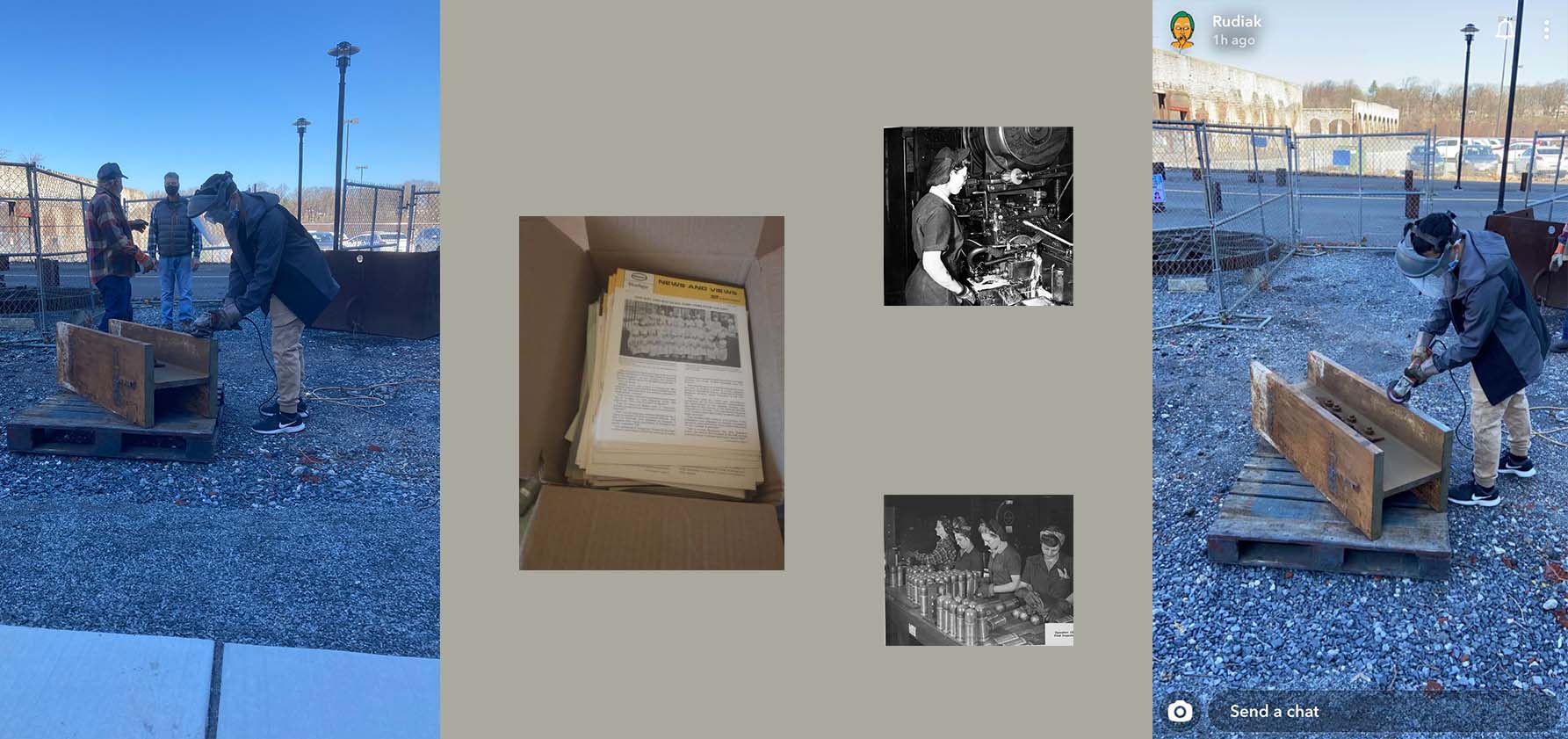
Those who think the study of history involves simply poring over volumes of text that describe events of the past may not be aware of how students of this important academic discipline enjoy an active learning experience at Moravian College. One avenue is HIST 288, aka the history internship course. Every student works an internship during the semester and must write a 12-page paper reflecting upon their experience.

Rachel Moser ’21 (pictured above), a double major in biology and history, interned at the National Canal Museum Archives in Easton, Pennsylvania, where she assisted with the research for a 2022 special exhibit at the National Canal Museum. The exhibit examines women’s labor within the Delaware & Lehigh National Heritage Corridor with an emphasis on wartime. With only a 15-week period to do her research, Moser chose to focus on women who worked at Bethlehem Steel.
One of the most valuable, and to Moser, eye-opening discoveries of the internship is that the source material for research is very diverse. Moser pulled from the usual academic papers and newspaper articles for overall history but then hoped to identify a specific woman who took over a man’s job at Bethlehem Steel during World War II and tell her story.
“I would have never thought to use YouTube as a source of research until it came time to find interviews with women who had done ‘men’s work’ in industry,” said Moser in a piece she wrote for the National Canal Museum newsletter. Unfortunately, those interviews yielded little information.
Her internship advisor directed her to look for payroll slips and workers’ manuals to inform her project. She tracked down some of those pieces along with several photographs of women working in the steel plants and the labor manuals that were maintained at that time. “They [gave] me a sense of the conditions in which the women worked and what they were paid,” Moser writes. “[Not surprising for the time period], women were expected to work in the same conditions as the men with worse pay and no private areas.”
Moser’s advice to other researchers of public history is to think outside the box. “You may just find a treasure trove of information that could change the entire course of your project.”
Amirbehnam Farbod ’21 interned at the National Museum of Industrial History in Bethlehem, Pennsylvania. He served the museum in two capacities. He helped create activities that would accompany an exhibit on inventor Robert Fulton. He also aided the historian in restoration work.
“This internship was valuable to me for several reasons,” says Farbod. “First, I felt the restoration work was very honorable and beneficial to society. The internship also expanded my understanding of the kinds of work a historian can do.”
Derick Hunsicker ’22 is majoring in political science and minoring in history and plans to attend either law or graduate school. He interned with the Bethlehem Area Public Library categorizing and organizing donated documents relevant to the history of the Durkee spice plant once located on Eighth Avenue in Bethlehem.
“The Durkee spice plant operated from 1957–1995 and was one of the Lehigh Valley’s economic giants during its time,” says Hunsicker. “It would eventually relocate to Des Moines, Iowa, in June of 1996 for a variety of reasons with the main impetus being tax incentives. Business leaders in the Lehigh Valley tried to convince the company to stay but to no avail.”
Hunsicker separated the documents into nine categories: introductory materials, newsletters, photographs, correspondence, cookbooks, promotions, calendars, newspaper articles, and finally, miscellaneous materials such as envelopes, posters, and ledgers. Within each category, he put the items in chronological order; then he scanned them in color and entered each item into an express file as metadata to be used by the person who would continue with the project. In addition to learning about Durkee, Hunsicker developed skills in working with historic documents. I’ve very much enjoyed the internship,” he says, “and it was gratifying to be trusted to handle the materials and the equipment.”
Filling out the remainder of the history internship class are these students:
Nicholas Bergsma ’21, Museum of Indian Culture, Allentown, Pennsylvania
Kali Costa-Zimmers ’21, National Museum of Industrial History, Bethlehem, Pennsylvania
Michael Erickson ’21, Reeves Library
Chloe Wenton ’22, Sigal Museum, Easton, Pennsylvania